Additionally Resourced Provision Setting
Welcome to our Hawes Down Primary School Additional Resourced Provision
Our Additionally Resourced Provision (ARP) is a specialist setting for children aged 4-11 with severe and complex learning and communication difficulties. Pupils in the ARP are able to access specialist teaching support to address their individual needs as well as have opportunities to study and interact socially with their peers in the mainstream classes. All pupils in our ARP are placed with us by the London Borough of Bromley (LBB) and have an Education Health and Care Plan (EHCP).
The ARPs staff team love being part of our children’s learning journeys; creating exciting learning opportunities to promote and develop communication, independence, and well-being. Our staff are dedicated to creating engaging environments which allow our children to thrive and develop in their own individual ways.
We embed our school’s values of Achievement, Bravery and Compassion (ABC) every day:
- Achievement- recognise that every step matters in all areas of our children’s personal development.
- Bravery- expose our children to new experiences and encourage them to take on new challenges .
- Compassion- support our children to value themselves and be kind to one another.
We seek opportunities to embrace whole school events and experiences wherever we can.
We look forward to meeting you and being part of your school journey.
For more information about the local offer provided by Bromley please visit,
https://bromley.mylifeportal.co.uk/educationlo/
http://www.bromleyparentvoice.org.uk/
OUR CURRICULUM OFFER
The development of communication skills, social interaction, independence and life skills and early literacy and numeracy skills underpin our curriculum offer.
Most pupils are able to follow adapted and modified programmes of study from the EYFS framework and National Curriculum. Planning and delivery of learning tasks is highly personalised based on individual needs and learning styles.
For pupils with the most significant needs, who may not yet be able to access subject specific learning, the national curriculum provides a context to engage and motivate pupils and to promote curiosity and awareness of the world around them.
All classes in the ARP follow a thematic approach with learning contexts, activities and resources planned to give all pupils a fun, engaging and enriching learning experience.
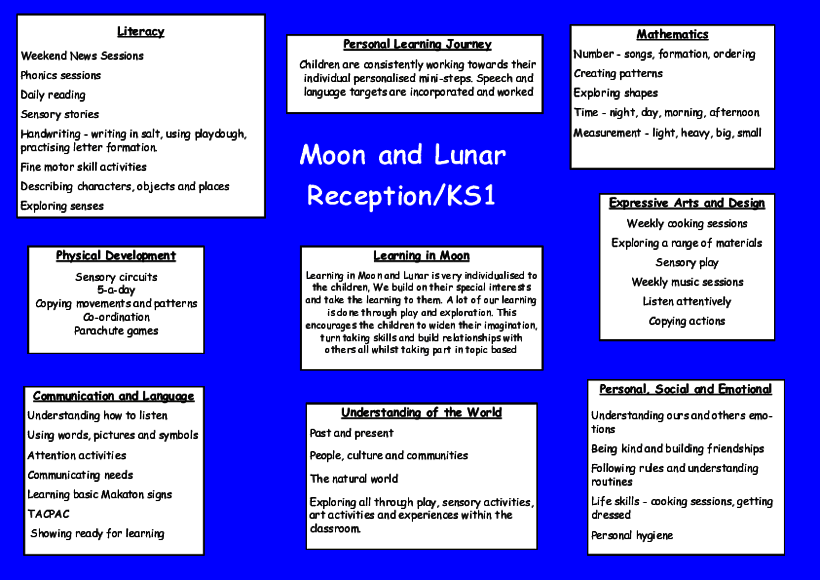
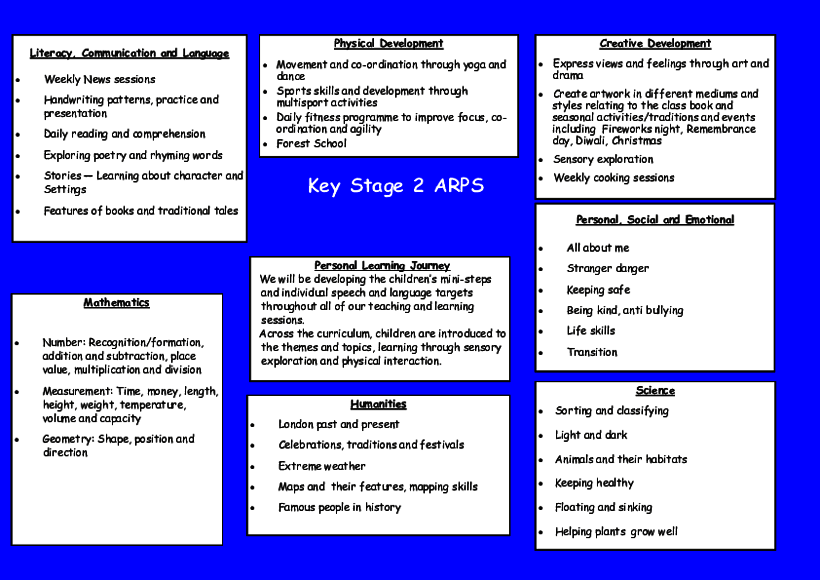
The aim of our curriculum offer is to ensure that each pupil can make good progress towards or achieve the objectives set out in his/her EHC plan, ensure readiness for their next phase of education and build on the independence and life skills to support their journey to adulthood. We want our pupils to be able to communicate effectively in a range of settings and be able to develop confidence and skills to enjoy social interaction.
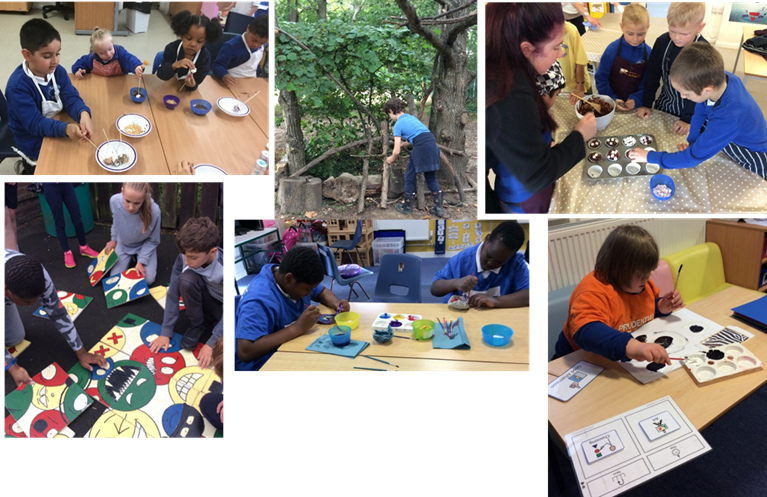
HOW WE TEACH
Groupings
Pupils are currently placed in four classes with up to 10 pupils with a teacher and additional support staff as required. Classes are currently vertically grouped with 2 classes for EY& KS1 and KS2. The changing profile of need of pupils more recently admitted to the ARP may warrant further adjustments to groupings which take into account level of cognitive delay and sensory needs rather than age alone. This will enable a more bespoke curriculum offer with an appropriate ambitious level of expectations for each child.
Staff skills and knowledge
Staff teams across the ARP have a range of specialist knowledge and skills to meet the needs of children with complex learning and communication needs. They are able to use specialist resources, strategies and interventions to support access and participation of pupils in all learning activities. This includes comprehensive use of visual aids, signs and symbols to support communication. All staff are trained in using Makaton.
Examples of other specialist interventions used across the ARP include:
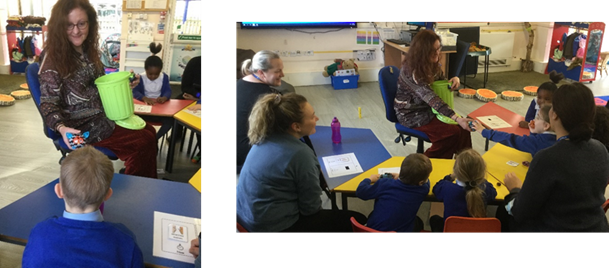
- Attention Autism- Different activities used to support engagement with children and spontaneous communication.
- Intensive Interaction- is an approach designed to help people at early levels of development, people who have severe, profound or complex learning difficulties and people who have autism. Intensive interaction works on early interaction abilities- how to enjoy being with other people- to relate, interact, know, understand and practice communication routines. It develops ‘Fundamentals of Communication’, attainments such as: use and understanding of eye contacts, facial expressions, vocalisations leading to speech, taking turns in exchanges of conversation and the structure of conversation.
- Tacpac- Tacpac draws together touch and music to create sensory communication. Tacpac creates sensory alignment and helps people of any age who have sensory impairment, developmental delay, complex learning difficulties, tactile defensiveness, and limited or pre-verbal levels of communication. Tacpac music is composed specifically to reflect the texture of each object so that the receiver experiences total sensory alignment. Tacpac enables progress to be measured and recorded.
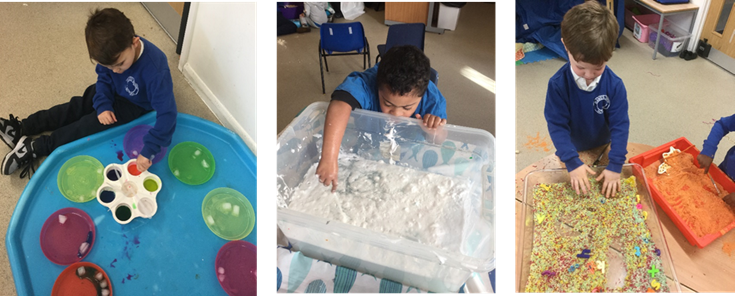
- Sensory based activities- through tactile play pupils will experience different learning through sensory play. The use of sensory/messy play to draw the attention of our pupils and support learning in a much more fun and engaging approach.
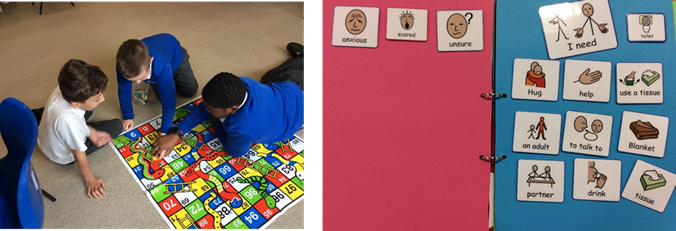
- Play based learning- it is very important to us at HDPS ARPS that the children get the opportunity to take part in play activities. These are either child led or adult led using our creative spaces both inside and outside learning environments. We have developed our own way of providing our children with free flow play opportunities using a combination of structure, routine, choice making and strategies such as TEACCH, Picture Exchange Communication (PECS), Objects of Reference, Makaton signing and symbols to enable our pupils to develop their own play skills in a secure and enabling environment.
Introduction to Makaton Videos
Mrs Gillette, teacher of Prospero Class, has prepared a number of instructional videos for use by pupils, parents and carers. These can be viewd by clicking on the links below.
Video 1: Introduction to Makaton and Family Signs - please click here to view
Video 2: Eating/Drinking Signs - please click here to view
Video 3: Types of Food Signs - please click here to view
Video 4: 'Its's Time To...' Signs for Daily Activities - please click here to view
Video 5: Greetings Signs - please click here to view
Video 6: Signs for Feelings - please click here to view
Video 7: The Tiger Who Came to Tea - A Signed Story - please click here to view
Therapy provision
For most pupils, individual speech and language or occupational therapy targets can be integrated into daily teaching across all subjects. Increasing the opportunity for each pupil to develop and generalise key skills. Teachers and support staff are able to access training and support from therapy teams to support implementation of these programmes.
In some cases, pupils may access some direct therapy either as staff are an individual or as a group to address key area of difficulties and/or as set out in his/her EHC plan.
Early Reading Development in the ARP
- Literacy and early reading are key feature in our curriculum in the ARPS and embedded across all curriculum subjects
- We recognise that pupils in the ARP will experience reading in their own individual way. As such we want to make sure that all pupils develop an enjoyment of reading and are able to interact with a range of texts and other media. We also recognise the need to enable all pupils to develop reading skills from their individual starting points and abilities.
- Where ready and appropriate, pupils will be taught phonics with access to a range of multi-sensory approaches to learn and recognise grapheme – phoneme correspondences. Our school phonics approach is through ‘Little Wandle’
- Pupils can practise and apply these skills through following structured reading schemes. For pupils struggling with phonics we draw on other strategies to support word recognition and decoding such as precision teaching.
- For other pupils, who may not yet be ready to be taught phonics, early reading will be linked to early communication skills with use of symbol/picture matching activities and increased opportunity to share and handle books with adults or experience sensory story telling
Inclusion into curricular and extracurricular mainstream activities
Our rationale for inclusion into mainstream is based on the individual needs of the pupils in our ARP, both academically and socially and in consideration of any additional support they might.
Collectively, our Reception ARP classes go to a play afternoon with the mainstream Reception classes once a week. This has been a really successful experience both for our ARP pupils and the mainstream Reception pupils.
Pupils from the ARP are actively involved or encouraged to take part in wider curricular activities, for example there are representatives from the ARP on the HDPS school council.
PUPIL PROGRESS AND ACHIEVEMENT
The process for baselining pupils and tracking progress has recently been updated to provide a more personalised approach based on the outcomes set out in each EHC plan.
Following discussion and agreement with parents these EHC outcomes are broken down and recorded in termly ‘mini step’ plans which provide a focus for support both at home and at school. Regular review enables any adjustment to steps or provision in place to secure good progress towards the outcomes.
For some children, where their needs may be associated with SEMH difficulties, an additional behaviour support plan may be in place to help identify any specific triggers which may lead to increased anxiety and distress and strategies to support emotional regulation.
In compliance with statutory regulations, pupils are also assessed at the end of key phases in respect to National Curriculum expectations and using the pre-key stage standards as relevant.
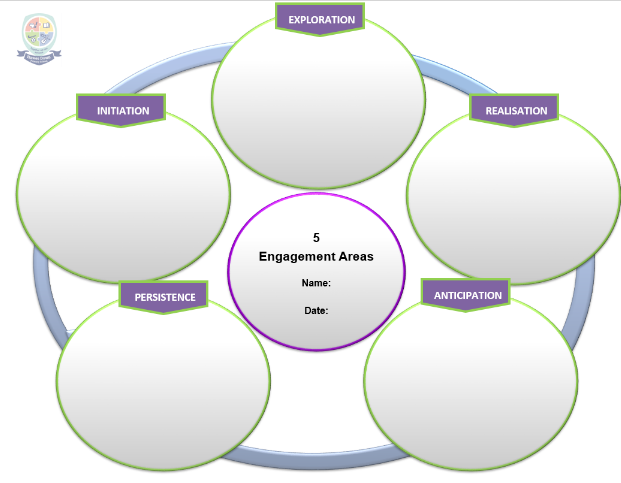
For pupils who are who are working below the standard of the national curriculum assessments and not yet ready to engage in subject specific learning, pupils will be assessed using the recently introduced Engagement model. The engagement model has 5 areas of engagement; exploration, realisation, anticipation, persistence and initiation. Each area provides a focus on how well pupils are achieving a specific outcome or individual development target as set out in their EHC plans.
Where pupils are able to access national curriculum programmes of study, progress of pupils is also informed using school wide assessment measures.
HOW DO WE EVALUATE THE QUALITY OF THE PROVISION?
We are able to draw on a range of measures to consider the quality of provision offered at the ARP. This will inform a clear picture of our strengths and successes and identify actions to further improve our offer.
This includes both the progress and achievements for individual children as well as benchmarking standards across the whole provision.
Impact measures include:
- Analysis of progress and achievement in respect to EHC plan outcome at individual and across the ARP.
- Gathering the views of parents via an annual survey and focus groups.
- Use of pupil voice both as part of the termly and annual review process and as part of overall views of their experiences in the ARP.
- Monitoring and scrutiny of attendance and exclusion data, benchmarking standards compared to wider school data and in relation to specialist provisions nationally.
- ARP inclusion in school wide cycle of activities to monitor teaching and learning standards.



